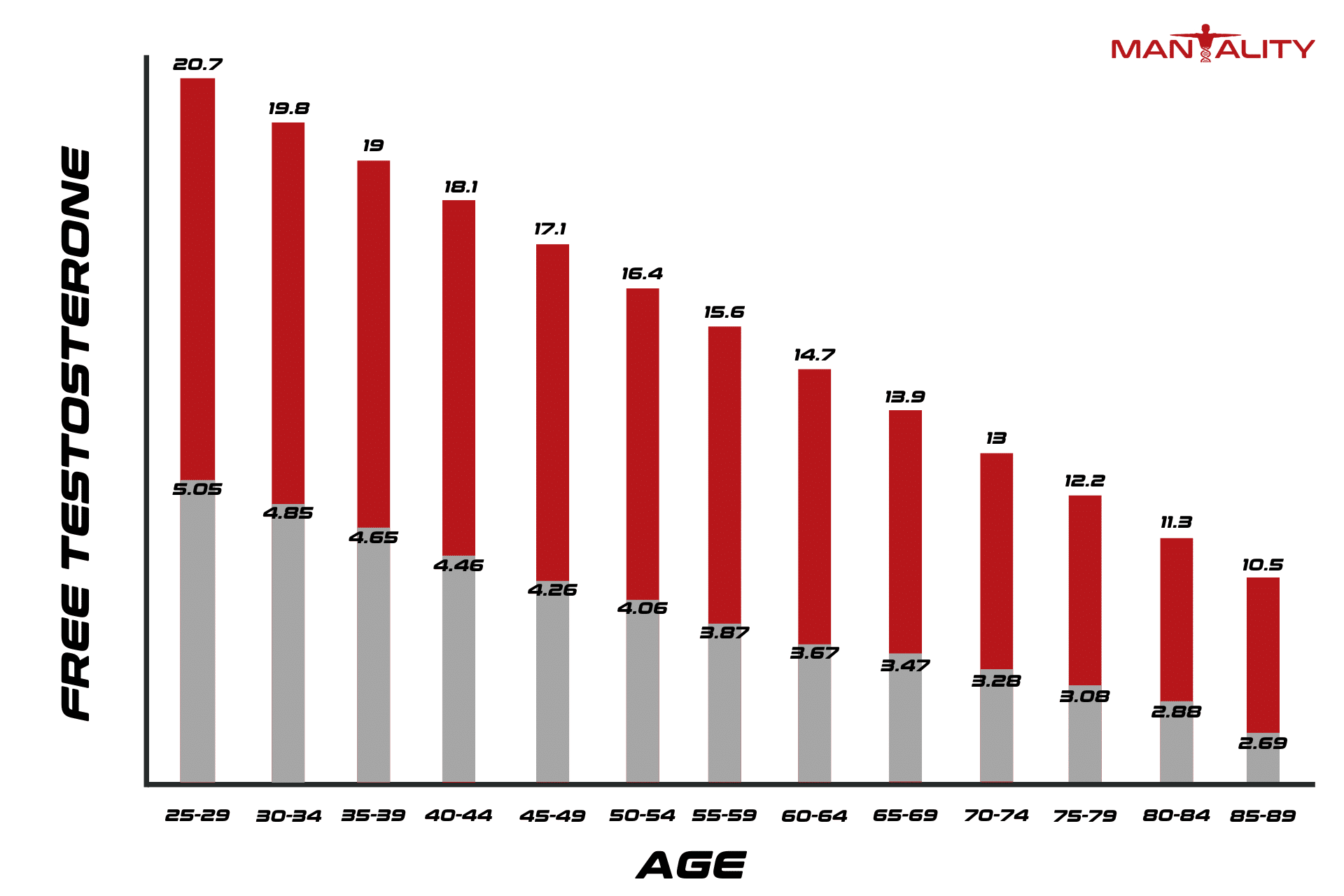Anxiety can stem from many sources, but for some people, low testosterone might be an overlooked contributor. Both men and women rely on balanced levels of testosterone for various aspects of physical and mental health, so a testosterone deficiency can impact the nervous system and even contribute to anxiety and depression.
Here’s a closer look at the connection between low testosterone and anxiety, including how chronic stress, hormone levels, and treatment options play a role.
Can Low Testosterone Cause Anxiety?
Low testosterone and anxiety disorder are more closely linked than you might think. Research suggests that low testosterone can negatively impact mood, leading to symptoms like anxiety, irritability, and even depression.
Testosterone plays a role in regulating the nervous system, which influences stress responses. When testosterone levels are low, it can heighten anxiety responses, contributing to persistent feelings of worry or unease.
Does Low Testosterone Cause Anxiety in Both Men and Women?
While testosterone is often associated with men, it’s also important for women’s health. Men naturally have higher levels of testosterone, but low testosterone can affect both men and women, leading to mood disturbances.
Low testosterone levels in men can lead to symptoms like irritability, low mood, and increased anxiety. Women may also experience a decrease in well-being if their testosterone levels fall below normal.
Can Anxiety Cause Low Testosterone?
Interestingly, the relationship between testosterone and anxiety goes both ways. While low testosterone can lead to anxiety, chronic stress and anxiety can also decrease testosterone levels. When the body is in a constant state of stress, it produces high levels of cortisol, the body’s primary stress hormone.
Elevated cortisol levels can reduce testosterone production, leading to a cycle where anxiety lowers testosterone, which then further contributes to feelings of anxiety and stress.
Symptoms of Low Testosterone
Low testosterone doesn’t only affect mood—it has a range of other symptoms that can impact daily life and relationships. Some common symptoms of low testosterone include:
- Decreased sex drive: Testosterone deficiency can result in a reduced interest in sexual activity.
- Erectile dysfunction: Low testosterone is often associated with sexual dysfunction, which can further contribute to anxiety and depression.
- Reduced muscle mass: Testosterone plays a crucial role in maintaining muscle mass, so a deficiency may lead to muscle loss.
- Increased fatigue: Low testosterone can lead to chronic fatigue, making it harder to stay active and positive.
These symptoms can reduce overall quality of life, creating more stress and impacting mood further.

The Role of Testosterone in Mental Health and the Nervous System
Testosterone has a significant impact on the nervous system and is essential for regulating mood and stress responses. It supports dopamine production and interacts with sex hormones that influence emotional well-being. For men with low testosterone, the lack of this hormone may make them more susceptible to anxiety, stress, and feelings of depression.
Anxiety, Depression, and Low Testosterone
Low testosterone and anxiety disorder are closely linked, and testosterone deficiency may increase the risk of developing anxiety and depression. Testosterone is often referred to as a “feel-good” hormone because of its positive effect on mood.
When levels of testosterone are low, people may experience mood swings and find themselves dealing with heightened anxiety or even symptoms of depression.
How Low Testosterone Affects Physical Health
Testosterone doesn’t just affect mental health; it plays a crucial role in physical health too. Testosterone impacts blood pressure, muscle mass, and bone density. It’s also essential for sexual function, so low testosterone can lead to issues like erectile dysfunction and low sex drive, which can further contribute to anxiety.
Chronic stress and anxiety can also negatively impact the cardiovascular system, leading to high blood pressure and other health concerns. Low testosterone can exacerbate these effects, creating a cycle where physical and mental health both suffer.
Treatment Options: Can Testosterone Replacement Therapy Help?
Testosterone replacement therapy (TRT) is a popular treatment option for men with low testosterone and anxiety. TRT works by increasing testosterone levels, which can help relieve symptoms of low testosterone, including mood disturbances. For some, TRT can be an effective way to improve quality of life, increase energy, and reduce symptoms of anxiety.
However, TRT isn’t the only option. Lifestyle changes, such as regular exercise, a balanced diet, and stress-management techniques, can also positively impact hormone levels and reduce anxiety. Engaging in activities that support mental health can create a more stable emotional environment, helping to break the cycle of low testosterone and anxiety.
Key Takeaways
- Low testosterone and anxiety are linked: Low testosterone levels can heighten feelings of anxiety and contribute to mental health struggles.
- Both mental and physical health are affected: Low testosterone impacts the nervous system, cardiovascular health, and muscle mass, influencing both physical and mental well-being.
- Treatment options include TRT and lifestyle changes: For those with testosterone deficiency, TRT and lifestyle modifications can help improve mood and reduce anxiety.
The Bottom Line
Low testosterone is more than a physical issue—it’s also connected to anxiety, mood swings, and overall mental health. Addressing low testosterone with options like TRT or lifestyle adjustments can improve not only testosterone levels but also emotional well-being.
If you’re experiencing anxiety or symptoms of low testosterone, consider speaking with a healthcare provider to explore potential treatment options that can enhance your quality of life.




